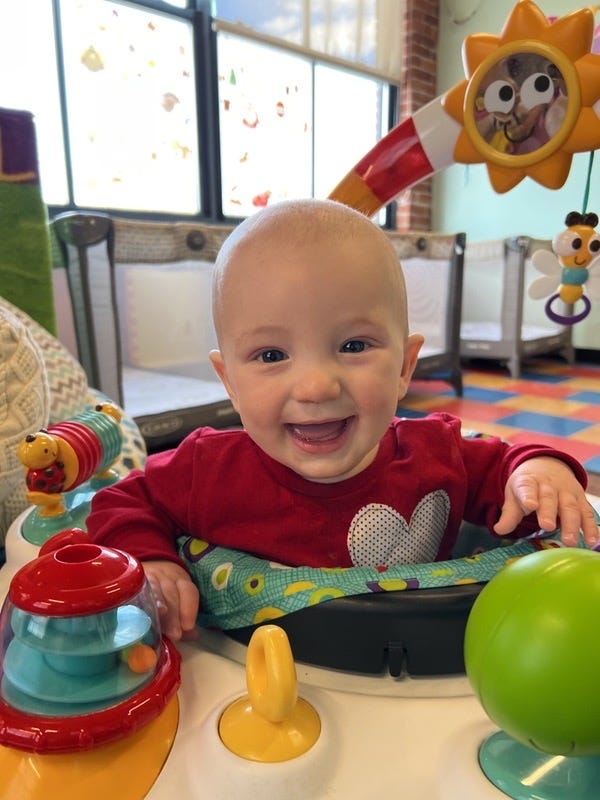Could 1-year-olds end the achievement plateau?
Changing education might be as easy as changing diapers.

$4400 each month. That’s what my wife and I pay each month for preschool for our two boys, ages 3 and 7 months.
$154 each month. That’s the maximum cost (per child) each month for preschool in Sweden.
The cost of childcare is beyond burdensome in some parts of the U.S. Here in Boston, childcare accounts for over 28% of the median family income.
The U.S. is far behind other countries in providing free, high-quality early childhood education, and the consequences of this foster the inequity that’s rampant in our society.
The failure to provide high-quality, early-childhood education puts an unnecessary burden on our K-12 public education system, particularly for students from low-income families who can’t afford preschool. In my previous role as a literacy director for a regional charter network, data showed that upwards of 50% of students arrived in kindergarten without the ability to recognize letters of the alphabet. The recent waves of 3rd grade literacy laws are a nice PR stunt, but our focus should be on preparing students to read before they get to kindergarten.
It also limits the ability of women – who most often serve as primary childcare – to re-enter the workforce and continue their careers. And it financially trammels parents – who pay too much – and childcare workers – who earn too little.
The benefits of high-quality early education aren’t just financial. Getting students into high-quality programs at an early age provides indisputable cognitive, social, and emotional benefits.
Just two years ago, the U.S was close to improving access to free, high-quality early childhood education. The original Build Back Better (BBB) federal legislation proposal contained a funding package for universal preschool across the country. Much of it was legislatively similar to the proposal passed in Multnomah County, Oregon (aka, Portland).
Despite its overwhelmingly popularity – more than 70% of Republicans and 90+% of Democrats favor free or heavily-subsidized childcare options -- the childcare package was eliminated from the version of BBB that Congress passed and President Biden signed into law.
While I think universal preschool for ages 3+ is a great start, I’d like to see us go even further. The current version of what we consider “public education” education — our K-12 model — has only existed for a portion of our country’s history. Free public high school only emerged in the early 1900s. As we move through the early 2000s with new knowledge about the importance of early childhood development, we could (should!) expand our public model to start at age 1.
Gaps in the precursors to educational achievement — language processing and vocabulary — become visible as early as 18 months in families from different socioeconomic backgrounds. As this oft-cited study shows, by age 2 there was a 6-month-gap in language processing between wealthier and poorer students.
Why? There are myriad reasons, and one is most likely the high cost of early childhood education that limits access for poorer families. We can change that.
When I drop baby Sam off each morning, he’s surrounded by a team of amazing (and still likely underpaid) teachers who speak to him, read him books, play with him, challenge his motor skills, and shower him with love and kisses in ways that will benefit him for the rest of his life. It comes with a high price tag, but it shouldn’t.
Thanks for reading. Have a great week’s end and an even better weekend.

Very interesting article. Was not the Head Start program designed to address this very thing? With 50 years of experience - the program of early education did not produce the expected results.
Maybe a universal pre school in the US would be more useful.